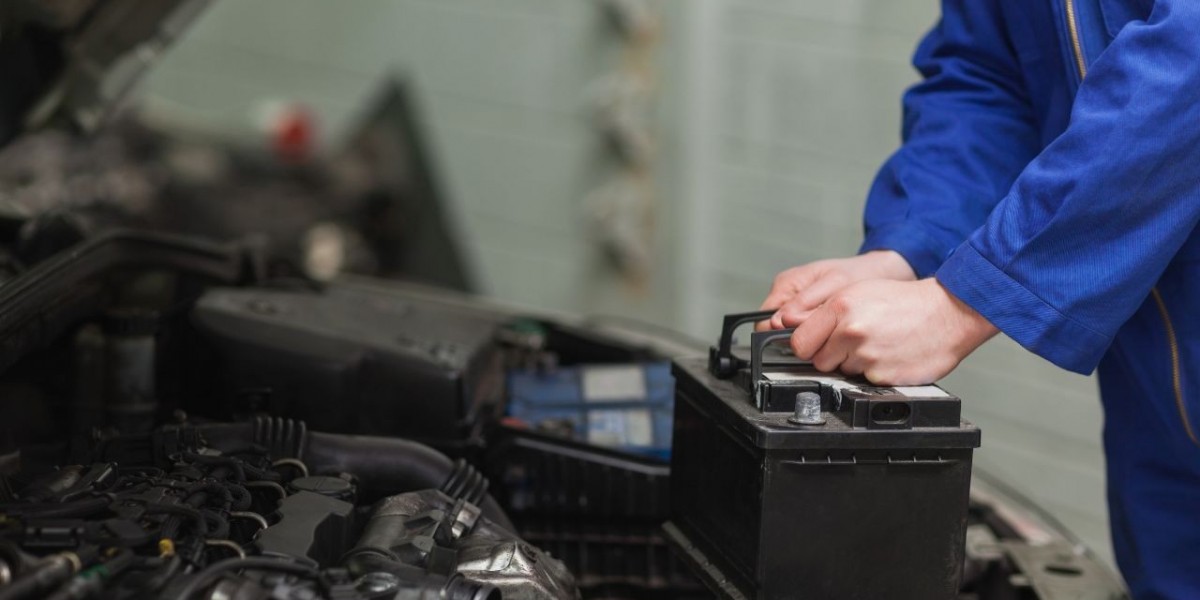Choosing the right car battery can feel overwhelming, especially with the wide array of options available in the market. Every driver wants a battery that guarantees reliability, longevity, and performance, but navigating car battery prices and understanding the technical specifications can be confusing. Investing in the best car battery for your vehicle is not just about upfront cost—it’s about long-term value, safety, and convenience.
This guide provides an in-depth look at everything you need to know about car battery selection and pricing, helping you make an informed decision for your vehicle.
Why Selecting the Right Car Battery Is Crucial
A car battery is the heart of your vehicle’s electrical system. It powers the engine during startup and supports electronic components such as lights, infotainment systems, and safety features. According to AAA research, battery-related issues are one of the leading causes of roadside assistance calls, accounting for nearly 25% of all breakdowns.
Choosing the right battery ensures:
- Consistent engine starts in any weather
- Stable performance of onboard electronics
- Prevention of unexpected vehicle breakdowns
Poor battery choices can lead to frequent replacements, inconsistent performance, and even damage to sensitive vehicle electronics.
Understanding Car Battery Prices
Car battery prices vary due to multiple factors. Understanding these elements helps you grasp why investing in a quality battery is worthwhile.
1. Battery Technology
The type of battery significantly influences performance and cost:
- Lead-Acid Batteries: Traditional, cost-effective option suitable for standard vehicles but may have a shorter lifespan.
- AGM (Absorbent Glass Mat) Batteries: Provide better vibration resistance and are ideal for vehicles with heavy electrical loads.
- EFB (Enhanced Flooded Batteries): Designed for start-stop systems, offering enhanced durability and better charge retention.
- Lithium-Ion Batteries: Advanced technology with exceptional lifespan and performance, commonly used in electric or hybrid vehicles.
Each battery type serves different vehicle requirements, and higher-performance technologies generally cost more.
2. Brand and Manufacturer Reputation
Reputable brands like Varta, Exide, and Amaron are known for high manufacturing standards, quality control, and reliable customer support. A premium brand often results in higher car battery prices, but it ensures performance, longevity, and warranty coverage.
3. Performance Specifications
Critical specifications include:
- Cold Cranking Amps (CCA): Indicates the battery’s ability to start the engine in cold conditions.
- Reserve Capacity (RC): Shows how long the battery can supply power if the alternator fails.
Higher-rated batteries cost more but provide reliable performance in extreme conditions.
4. Materials and Manufacturing Quality
Quality batteries use thicker lead plates, advanced electrolytes, and superior separators. These materials enhance durability, resist corrosion, and deliver stable energy output, which contributes to higher upfront cost but ensures long-term value.
5. Warranty and After-Sales Support
Longer warranties are an indicator of a manufacturer’s confidence in the product. While batteries with extensive warranty coverage may cost more, they provide protection against premature failures and potential replacement costs.
How to Choose the Best Car Battery
Selecting the right battery involves more than picking the highest-rated option. Consider the following factors:
1. Vehicle Specifications
Always consult your vehicle manual to choose a battery that matches the recommended size, voltage, and capacity. Using an incompatible battery can compromise performance and longevity.
2. Driving Patterns
Short trips, frequent start-stop driving, or heavy electrical usage increase battery demand. Vehicles exposed to harsh climates or extended idling require batteries with higher durability and cold cranking power.
3. Battery Technology
Choosing between lead-acid, AGM, EFB, or lithium-ion depends on your vehicle’s electrical load and technology. For example, start-stop vehicles benefit from EFB batteries, while hybrid cars often require lithium-ion batteries.
4. Brand Reliability
Select batteries from trusted manufacturers with positive reviews. Brand reputation reflects quality, warranty support, and reliability.
5. Warranty Coverage
A longer warranty not only provides peace of mind but also indicates confidence in battery longevity.
Maximizing Battery Performance
Even the best car battery requires proper maintenance to ensure maximum performance and lifespan:
- Regular Inspections: Monitor battery terminals, check voltage, and inspect for corrosion.
- Clean Connections: Ensure terminals are free of debris to maintain optimal conductivity.
- Avoid Deep Discharges: Repeatedly draining the battery completely can shorten its lifespan.
- Protect Against Extreme Temperatures: Park in shaded areas during heatwaves and sheltered areas during freezing conditions.
- Professional Installation: Proper installation reduces vibration damage and ensures secure connections.
For reliable options and guidance, visit AutoTaLab’s Battery Section.
Common Misconceptions About Car Battery Costs
Myth 1: The Cheapest Battery Is Cost-Effective
Low-cost batteries may fail prematurely, resulting in more frequent replacements and higher long-term costs.
Myth 2: Expensive Batteries Are Always Better
Price alone does not guarantee suitability. Ensure the battery matches your vehicle’s specifications and performance requirements.
Myth 3: Maintenance-Free Batteries Require No Attention
Even maintenance-free batteries benefit from periodic inspections and cleaning to maintain optimal performance.
Evaluating Total Cost of Ownership
When selecting a battery, consider the total cost of ownership:
- Reduced replacement frequency saves money over time.
- Reliable performance minimizes the risk of breakdowns and repair costs.
- High-quality batteries protect sensitive electronics, preventing expensive damage.
Evaluating total value rather than focusing solely on upfront car battery prices helps make a smarter investment.
Benefits of Investing in a High-Quality Battery
Investing in the best car battery offers multiple long-term benefits:
- Extended Lifespan: Fewer replacements over the vehicle’s lifetime.
- Reliable Engine Starts: Consistent performance in all weather conditions.
- Enhanced Safety: Protects sensitive electronic systems.
- Reduced Maintenance: Advanced batteries often require minimal upkeep.
- Peace of Mind: Confidence in avoiding unexpected roadside failures.
Understanding Battery Specifications
When comparing batteries, familiarize yourself with key specifications:
- Voltage: Most vehicles require a 12-volt battery.
- Cold Cranking Amps (CCA): Determines performance in cold weather.
- Reserve Capacity (RC): Measures how long the battery can run if the alternator fails.
- Amp-Hour Rating (Ah): Indicates total energy storage capacity.
These specifications, combined with brand quality and warranty, help identify the best fit for your vehicle.
Conclusion
Selecting the right car battery is a balance between quality, performance, and cost. The best car battery ensures reliable engine starts, supports critical electrical systems, and offers long-term value.
While car battery prices may vary depending on technology, brand, specifications, and materials, focusing on total value rather than initial cost ensures smarter investment decisions. A high-quality battery reduces maintenance, prevents unexpected breakdowns, and protects your vehicle’s electronics.
By understanding the connection between battery quality and pricing, drivers can make informed choices that provide reliability, safety, and peace of mind for years to come. Investing wisely in a car battery today ensures uninterrupted performance and long-term savings tomorrow.



